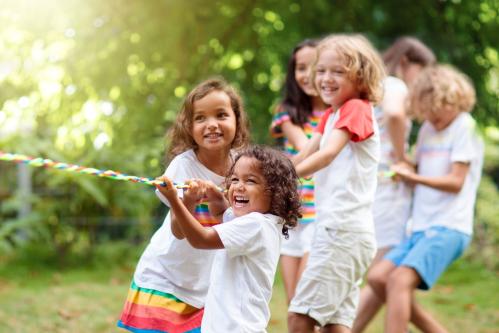New evidence suggests that arts education helps students develop 21st century skills such as creativity, imagination, communication and teamwork.
If the Arab world continues to under-value arts education, it risks falling even further behind developed countries in preparing students for the knowledge economy.
Art for Art’s Sake – a report released by the OECD today – should change the perspective of any country in the region that is truly aspiring to become an innovation hub in the 21st century. The UAE is well placed to advance arts education as it has made both education reform and access to the arts priorities of its national development strategy.
Innovative societies value artists as much as scientists and entrepreneurs. Entrepreneurship, in particular, is rightfully gaining recognition in the region as a wellspring of innovation. Arts education should have the same level of support.
Researchers have found that artists possess the type of habits of mind sought after in the job market, such as observing, persisting and stretching oneself. Arts graduates are among the most likely to hold highly innovative jobs – at par with graduates in engineering and computing. They are also needed as part of a growing trend of collaborative teams in companies that are competing in product development and marketing based on design. After all, it was smart design, not new technology, that gave Apple such success with the Ipod and Ipad.
Yet Arab governments, educators and parents continue to push students into traditional jobs.
Rabea Ataya, the CEO of Bayt.com, the Middle East’s most established job site, says employers are searching for young people with good arts education, and pay them well. This information should debunk the myth an arts education does not lead to a good job.
The OECD study says music education strengthens IQ and academic performance, and may facilitate foreign-language training. Theatre education strengthens verbal skills. Visual arts strengthen geometrical reasoning. Drama enhances empathy and emotion regulation. Infusing the arts into schools makes their culture more inquiry based.
Governments, academics, the private sector and philanthropists all have roles to play in increasing awareness of the benefits of arts education.
But in the Arab world few schools integrate arts education.
Three new initiatives could provide inspiration.
Finland created Aalto University, merging three schools to bring together art, engineering and business and nurture innovation and entrepreneurship. Aalto is attracting top academics and students, in Finland and internationally.
South Korea has added arts into its already successful STEM (science, technology, engineering, arts and mathematics) education. The idea is to increase graduates’ self-confidence, creativity and teamwork.
Singapore established the School of the Arts, where students learn about physics through sculpture and math through music, for example. Practising artists work with students, emphasising experimentation, expression and discovery. The results are outstanding. The first cohort of students all passed the International Baccalaureate diploma examination; 44 per cent of them were in the top 5 per cent of students who took this exam worldwide.
The Arab world needs bold initiatives of its own, and the UAE has the necessary resources.
Governments, academics, the private sector and philanthropists all have roles to play in increasing awareness of the benefits of arts education. Training must be focused on using the arts to give students new ways to understand their subjects. Employers need to explain the need for arts graduates and the jobs available to them. The arts have always been a rich part of the Arab world’s history and culture. Islamic art dating back to the seventh century is still celebrated today for its immense impact on architecture, painting, crafts and literature.
Amid concerns that globalisation is eroding Arab culture, investing in arts education would be sensible. Artists record experiences in ways history books cannot capture, they preserve culture by exploring its depths and unraveling its myths, and they give a voice to people’s greatest hopes and dreams.
Every student in the Arab world should have the opportunity to develop artists’ habits of mind and to reap the benefits, personally and professionally.



Commentary
Op-edArts Education in the Arab World Deserves More Respect And Resources
June 17, 2013